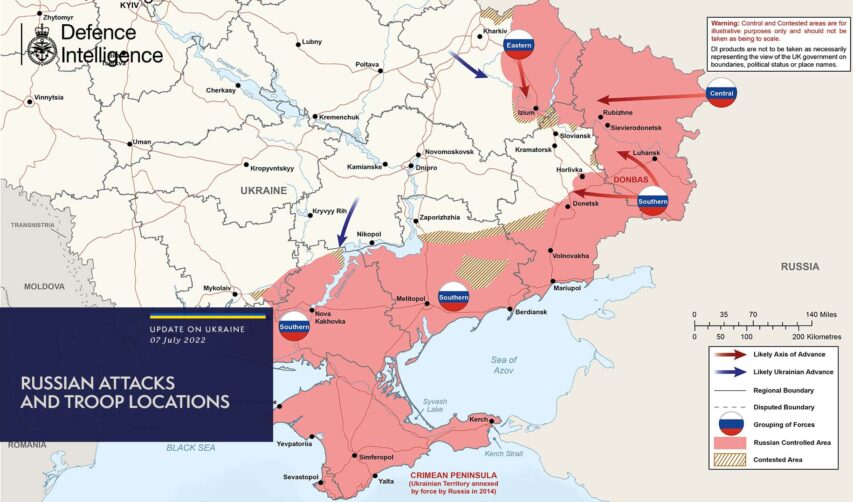In First Things, George Weigel identifies what we’ve learned about the Russian “way of war” from the ongoing conflict with Ukraine:
Four and a half months after Russia invaded Ukraine on the Orwellian pretext of displacing a “Nazi” regime — a regime that enjoys a democratic legitimacy absent from Russia for two decades — what have we learned about, and from, the Russian way of war?
We have learned that the Russian way of war is inept strategically, tactically, and logistically: an army using inferior equipment, bereft of competent non-commissioned officers, and replete with ill-trained draftees; an army that relies on brute force to bludgeon its way toward its objectives. We have learned that the Russian way of war willfully obliterates cities and deliberately destroys economic infrastructure. We have learned that the Russian way of war targets hospitals and schools, cultural and educational institutions, churches, synagogues, and mosques in an attempt to eradicate a culture and a nation that Russian president Vladimir Putin insists has no right to exist, save as a Russian vassal. Thus the twenty-first-century Russian way of war breathes the spirit of eighteenth-century imperialism, with President Putin comparing himself to that quintessential Russian imperialist, Peter the Great, and telling schoolchildren asked to name Russia’s borders in a geography bee that “the borders of Russia never end”.
We have learned that the Russian way of war is insensible to casualty rates, its own army’s and Ukraine’s. We have learned that the Russian way of war includes abandoning the Russian dead or disposing of their remains in mobile cremation units, so that body bags don’t flood the home front and raise questions about the wisdom of Putin and his generals. We have learned that the Russian way of war includes the humiliation, torture, and probable execution of prisoners of war. We have learned that the Geneva Conventions on the humane treatment of POWs mean no more to the Russian military and its political masters than does the Fifth Commandment.
We have learned that the Russian way of war includes the use of cluster munitions and unguided missiles specifically forbidden by international law. Thus the Russian way of war systematically violates the two in bello (war-fighting) principles of the just war tradition: proportionality of means (no more force than necessary to achieve a legitimate military objective) and discrimination (non-combatant immunity). We have learned that the Russian way of war features widespread rape, gross theft, and the summary execution of civilians, as well as kidnapping civilians in Russian-occupied territories, relocating them, and attempting to coerce them into renouncing their Ukrainian allegiance.
We have learned that the Russian way of war includes illegal blockades of Ukrainian ports to prevent grain shipments, thus threatening starvation in Third World countries. We have learned that the Russian way of war includes energy blackmail, threats of nuclear-weapons use, and blatant bullying of other countries, including Lithuania and Kazakhstan.




